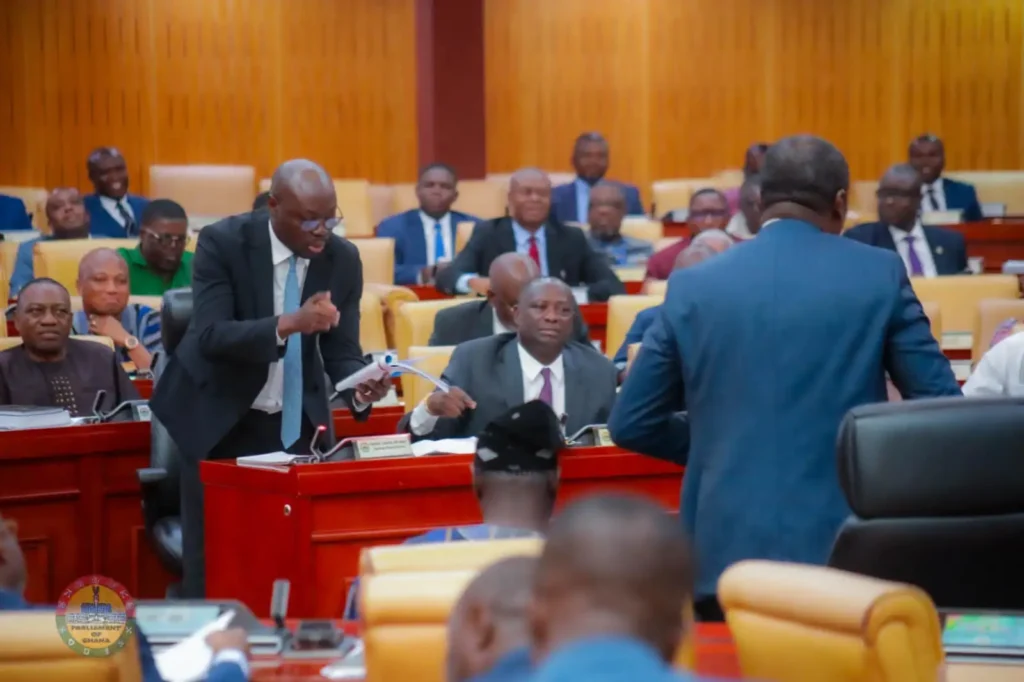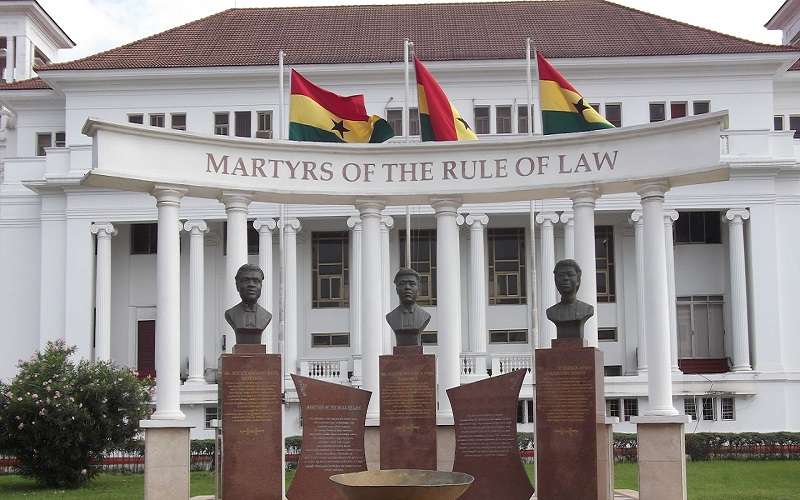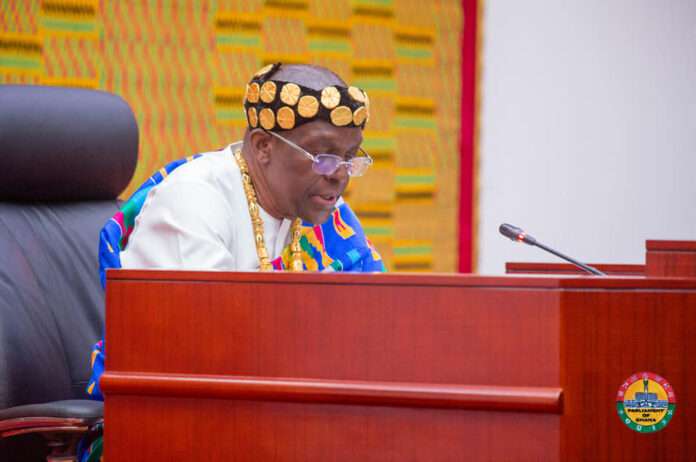The Speaker of Parliament, Hon. Alban S.K. Bagbin, has emphasized that there is no constitutional crisis in Ghana, as Parliament remains functional and operational.
In a press briefing at Parliament House, he urged Ghanaians not to be misled or misinformed, advising them to reconsider any misconceptions about Parliament’s functioning.
The Speaker further clarified that the democratic principles, procedures, and practices outlined in the 1992 Constitution have been activated, demonstrating that these principles are functioning as intended.
“Let us allow it to work. Democracy is about the rule of law; let the law work. The democratic system we adopted and enacted recognizes that in the course of operationalizing the system, disagreements will occur and challenges and prudence will arise”.
“The system has put in place mechanisms, structures, institutions, processes, procedures, and rules to follow and apply to resolve the disagreements, convert the challenges into opportunities, and provide solutions to the problems. This is what is being pursued and applied. There is no constitutional crisis in the country”.
Hon. Alban S.K. Bagbin
Speaker Bagbin, who has served in Parliament for over thirty-two years, emphasized that his mission is to leave the institution stronger than he found it.

He expressed his commitment to ensuring that Parliament continues to uphold its core functions and serves the people of Ghana effectively.
He firmly rejected the notion that Parliament had been dissolved or suspended, explaining that it had only been adjourned indefinitely due to a lack of quorum.
This situation arose when the NPP caucus walked out of Parliament, preventing the necessary number of members from being present to make decisions or conduct business.
Bagbin asserted that the adjournment of Parliament was carried out legally under the authority of the Speaker, urging the public to “stop pressing the panic button and fear-mongering and allow the system to work.”
Bagbin Highlights Democracy Concerns in Afenyo-Markin’s Legal Case
Speaker Alban S.K. Bagbin further highlighted that the case before the Supreme Court, filed by Hon. Alexander Afenyo-Markin against Parliament, raises not only legal concerns but also significant implications for Ghana’s democratic governance.
He pointed out that at the heart of the legal suit lies the fundamental principles of Ghana’s democracy.
Bagbin added that while numerous legal arguments have been presented in and out of court, the broader political and governance implications of the suit have not been adequately discussed, leaving a gap in the national dialogue.

“It is my considered view [that], this should also be vigorously articulated to give a holistic approach to resolving the issue. As one of the protagonists of this issue and a long-time practitioner, it will be a disservice not to bring your attention to some of the facts…
“The current brouhaha may be likened to a power play between the arms of government and has the potential to undermine our democracy and the authority of parliament. Its outcomes could subvert Ghana’s constitutional order and the democratic system Ghanaians have toiled, sacrificed their lives, and shed blood to establish for decades”.
Hon. Alban S.K. Bagbin
Speaker Bagbin also pointed out that the interference of the Executive and the Judiciary in Parliament’s work directly challenges the essence, jurisdiction, powers, and functioning of the institution.
He emphasized that Parliament serves as the repository of the sovereignty of the people of Ghana, suggesting that such interference is not only inappropriate but dangerous.
Bagbin expressed concern that it is increasingly apparent that the Judiciary and the Executive seem to be collaborating to undermine Parliament. “The decision of the Ghanaian voters in the 2020 Presidential and Parliamentary elections is clear and loud to all discerning people”.
He affirmed that this decision clearly reflects a preference for a collaborative government over a winner-takes-all approach.
Bagbin also underscored that the powers of the Judiciary are limited, stating that they end where the powers of Parliament begin, as outlined in the Constitution, thus reinforcing Parliament’s autonomy.
He asserted that the issue at hand could have been solved in Parliament with maturity without it being sent to the Supreme Court as done by Hon. Alexander Afenyo-Markin.
READ ALSO: Cardi B Reacts to Kamala Harris’s Defeat























